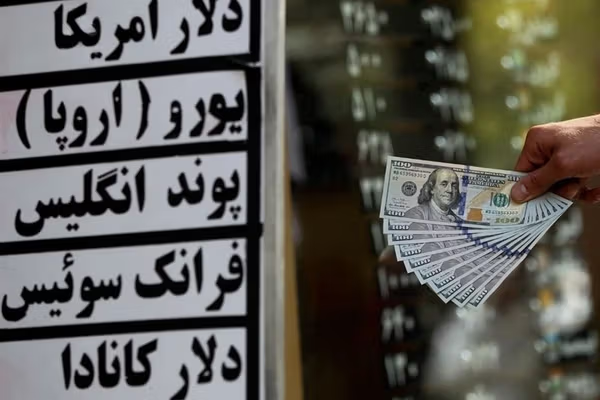
Salutes and anthems: how sports succumbed to Iran's culture war
Iranian athletes competing abroad face conflicting pressures: the state demands public displays of loyalty, while opponents expect defiance.

Iranian athletes competing abroad face conflicting pressures: the state demands public displays of loyalty, while opponents expect defiance.

Voices are growing in Tehran that warn the ruling system has only a narrow window left to launch reforms essential for its survival.
Ultra-hardliners in Tehran blasted a new nuclear deal struck in Cairo with the UN atomic watchdog, accusing negotiators of bypassing parliament and putting national security at risk.
Iran’s Foreign Minister Abbas Araghchi on Wednesday cast doubt on a potential opening in the nuclear standoff, appearing to undermine the deal he had signed just a day earlier with IAEA Chief Rafael Grossi in Cairo.

Israel’s strike in Doha targeting senior Hamas leaders has given Tehran a chance to present itself as the true defender of Arab sovereignty and Palestinian resistance.

Pressure on President Masoud Pezeshkian’s government continues to mount despite explicit support from Supreme Leader Ali Khamenei, who this week praised the president and his cabinet during a meeting in Tehran.

The so-called “Look East” strategy has become the latest point of contention in Tehran's fractious politics, with conservatives presenting it as a shield against Western isolation and reformists warning it risks overreliance on unreliable partners.

The vicious debate over a free concert at Tehran’s most iconic square—and its eventual cancellation—has laid bare not only the rulers’ fear of spontaneous crowds but also deep rifts among Iranians themselves.

A fresh hike in bread prices has deepened the strain on many Iranians, prompting warnings from a prominent economist that unchecked inflation could spark unrest.

Firsthand accounts reveal how severe water and electricity shortages are disrupting daily life across Iran, with blackouts causing life-threatening accidents and hardship for vulnerable families.

Tehran’s sharpening nuclear clash with the West and embrace of Beijing and Moscow have brought it to a crossroads, where choices this month may decide the future of Iran’s rulers and the ruled.

The postwar debate over Israeli infiltration of Iran’s security and political system has added another layer to contentions in Tehran, with warnings and accusations directed at some hard-liners and radical insiders.

Iran has once again floated the idea of replacing the US dollar with local currencies in trade with its partners, but so far the push has gone nowhere.

Former Iranian president Hassan Rouhani has called for the exit of intelligence and security forces from the economy in a rare sweeping call for reform by a former key player in Tehran's political and security establishment.

A senior cleric’s claim that Iran’s Supreme Leader endorsed new indirect talks with Washington has raised questions about divisions in Tehran, after Ali Khamenei himself appeared to rule out negotiations in a recent speech.

Iran’s new security chief Ali Larijani has appointed a longtime rival as his deputy at the Supreme National Security Council (SNSC), in a sign of potential shifting power dynamics at the apex of power at a delicate moment.

Conservatives in Iran are criticizing hijab style bloggers for undermining Islamic femininity, promoting vanity and luring religious women away from traditional dress.

Europe’s move to trigger the so-called snapback mechanism has sparked an online storm in Iran, ranging from despair and anger to calls for war, regime change, and nuclear weapons.

Iran could face fresh shocks to its already deeply rattled currency, costs of living and growth prospects if UN sanctions lifted by a 2015 nuclear deal are reimposed.

Iran has charged comedian Zeinab Mousavi over her satire of Ferdowsi, the 10th-century Persian poet behind the epic Shahnameh, using the controversy to stir patriotism after the war with Israel.

Allegations by an Iranian official suggesting Russian complicity with Israel in attacks on Iran have sparked debate over the value of Iran’s long-touted strategic partnership with Russia.

At the cost of creating serious water shortages, Iran’s agricultural sector has vastly expanded over recent decades in pursuit of food self-sufficiency and hard currency through exports.